Homeowners’ Associations come in all shapes and sizes from single family communities to stacked condos but they all have one thing in common and that is they are governed by a Board of Directors. The board has the ability to change the number of pets an owner is allowed to have; fine owners for lack of dues payments; supervise tree cutting and in general make life pleasant or miserable for the residents it governs. More importantly, the board, with the assistance of an association manager, establishes budgets and reserves so that the association, which is a non-profit corporation or LLC, has adequate funds to manage its financial responsibilities to its owners.
One aspect of financial management is adequate insurance. Homeowners need to understand what is covered under the various insurance policies available. The declaration will clearly state who or what entity is responsible for road maintenance and replacement, water and sewer pipes and the building structures. For example, in a site condo association, the building insurance is the responsibility of the unit owner because the unit is enveloped in an air space so that it functions, for insurance purposes, like a single family home and also reduces monthly dues. The HO-6 policy covers personal belongings or, in other words, anything that is not a fixture. Just turn the unit upside down and shake it. Anything that falls to the floor should be covered. Again, that portion of the policy is similar to a homeowner’s policy for a fee simple home. However, if you have upgraded your appliances because you couldn’t live without a Viking five burner stove or even upgraded the pad under your carpeting, you need to tell the insurance agent or otherwise they will assume a builder grade and you could end up under insured.
You should also ask your insurance agent for a special assessment rider which covers any special assessments that may be assessed against the unit. The policy limit for that is usually $2,000 with a deductible of some amount. However, it is a real savings to the unit owner, particularly if you are buying into an older condo development which may or may not have adequate reserves for painting and roof repairs, two of the most common special assessments. Any condo buyer should not only examine the association’s budget and reserve amounts but they should also read the last six months of minutes from the board meetings where they will discuss any potential pending assessments. For many buyers, condo living where someone else manages the physical structure, grounds and pays the utility bills is a welcome respite from the hassle of every day life. However, it gets complicated if the board becomes power hungry and overly rigid in its demands. The board’s primary responsibility should be sound financial management. Overly restrictive actions and lack of financial stability can ultimately have a negative effect on property values.

 Connie Yoshimura is the Owner and Broker of Berkshire Hathaway HomeServices Alaska Realty. With over 40 years of residential real estate experience, she continues to be a leader in Alaska’s housing market. Most recently, she sold the highest-priced home ever recorded in the Alaska MLS.
Connie Yoshimura is the Owner and Broker of Berkshire Hathaway HomeServices Alaska Realty. With over 40 years of residential real estate experience, she continues to be a leader in Alaska’s housing market. Most recently, she sold the highest-priced home ever recorded in the Alaska MLS.
Leave a Reply